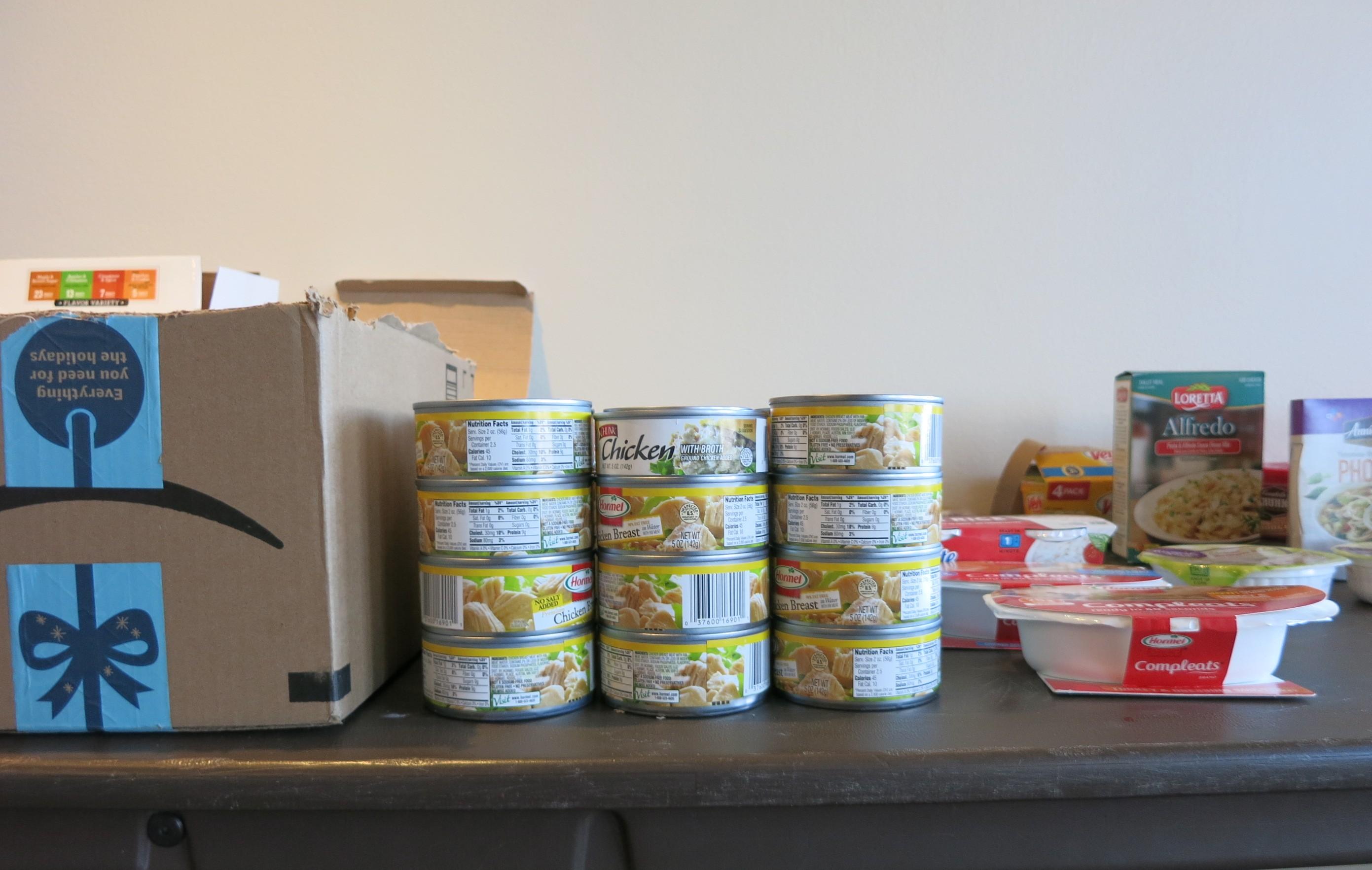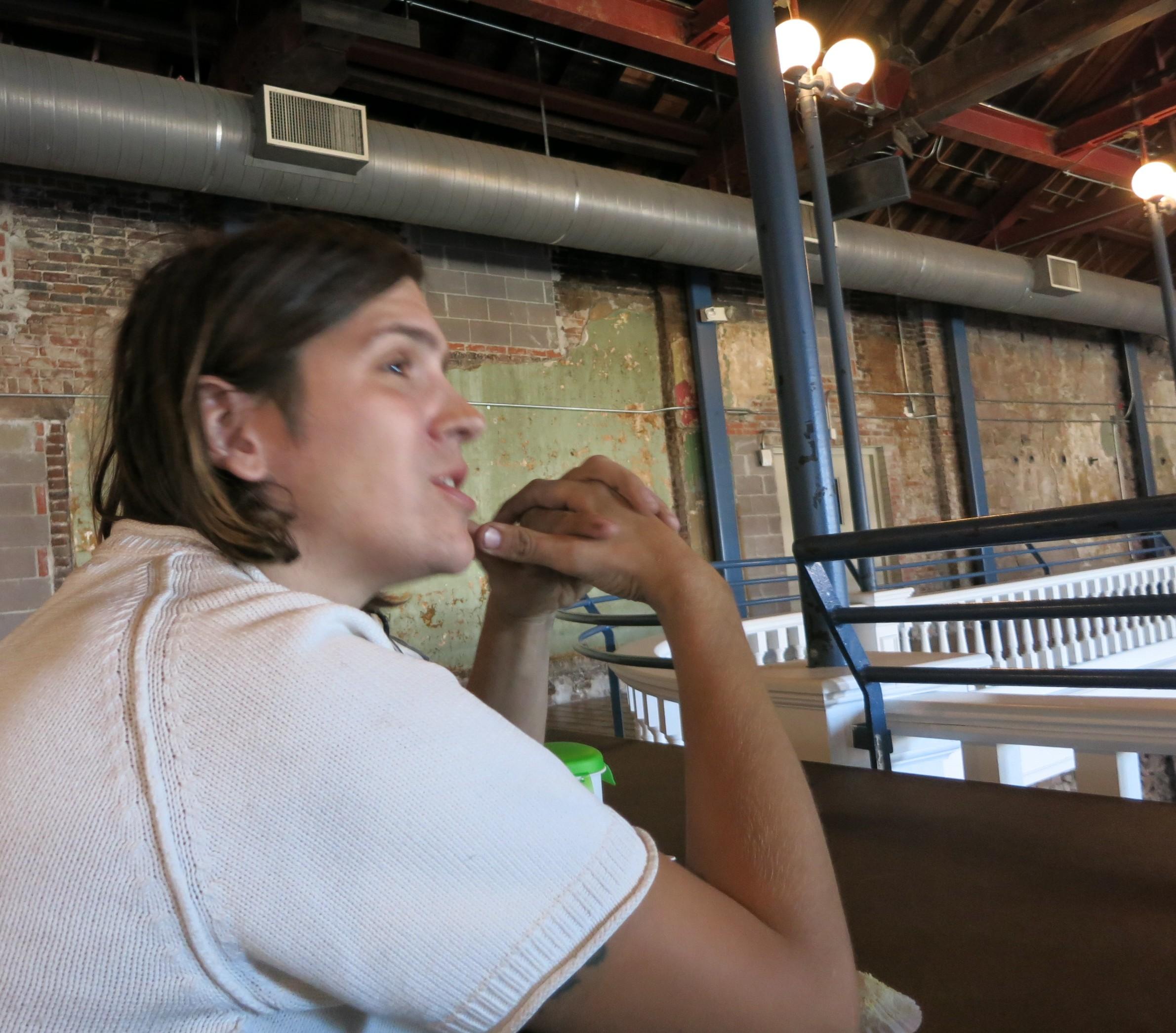Getting a tiny home in Beloved Community Village gave Silla Wolf the stability she needed to start school.
She's not sure she'll finish because the village has to move and has not yet secured a new site.
"My housing is at risk," Wolf said. "Nerve-wracking."
Wolf has studied for two semesters at the Community College of Denver and is set to start a music program at Metropolitan State University of Denver in the spring. I spoke with the 31-year-old violinist Wednesday at an Auraria Campus event held to draw attention to the struggles of students who can't be sure where they will sleep or eat tonight.
Coby Wikselaar, a University of Colorado Denver graduate student in political science who helped organize the Auraria Hunger and Homelessness Awareness event, said she hoped the day of discussion would spur action. One of Wikselaar's goals is to bring to Auraria a chapter of The Campus Kitchens Project, a national program that encourages students to learn more about hunger in the United States as they collect unused food from dining halls and other sites to make meals to distribute in their communities.
Hunger and homelessness on campus is drawing increasing attention. The Hope Center for College, Community, and Justice, a think tank at Temple University in Philadelphia, surveyed 33,000 students at 70 community colleges in 24 states and in a report last year said 13 to 14 percent were homeless and half did not feel they could count on their housing. Two-thirds of the students weren't always always able to get enough to eat food.
While not representative, the broad survey makes clear the problem is serious. The College and University Food Bank Alliance, founded by the Michigan State Student Food Bank and the Oregon State University Food Pantry to support campus programs to alleviate food insecurity, hunger, and poverty among students, started in 2012 with 15 schools and has grown to more than 650 members.
In Denver, Regis University started a food pantry this year. The University of Denver also has a pantry that started informally a few years ago and last year was moved into the school's Center for Sustainability.
"The folks who work in student services hear about a couple of student who are homeless, they know students are struggling," said Chad King, director of DU's Center for Sustainability.
Each of the three schools on the Auraria campus have had food pantries for several years, Wikselaar said. The three schools participated in a Hope survey this year and expect results next year.
As part of Wednesday's event a table was set up in a room at Auraria's Tivoli student center where people in need could pick up food and toiletries. Organizations that advocate for or serve people experiencing homelessness and hunger handed out information as presenters discussed Denver's housing crisis, its camping ban and other issues. Students like Wolf shared their experiences.

A free lunch of chili and cornbread was served. Wolf, who sells home decor handicrafts on Etsy, said she depended on such opportunities.
"Even now it's hard for me to get a good meal," she said.
Wolf, who is transgender, said she came to Colorado from Ohio in 2016 because she believed it was a state where the LGBTQ community was protected from discrimination. She quickly found a home and a fast food job, then almost as quickly lost both. After periods in shelters and on the streets, Wolf got a home at Beloved when it opened last year. The site near the 38th and Blake light-rail station was temporary and is soon to be developed for affordable housing.
Colorado Village Collaborative and other organizers recently learned from the city that they could not move as planned to a new site at Taxi because of flooding concerns. The mayor has directed staff to help Beloved Community find a new site on city or private land.
Wolf said she hoped Wednesday's event would raise awareness that "will make people act.
"I'd love to see a landowner say, 'Hey Beloved Community Village, come stay on my land.'"













